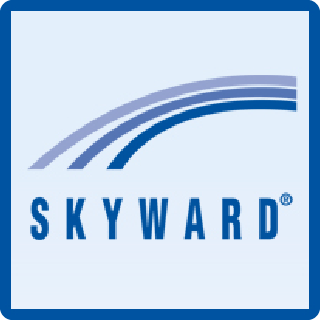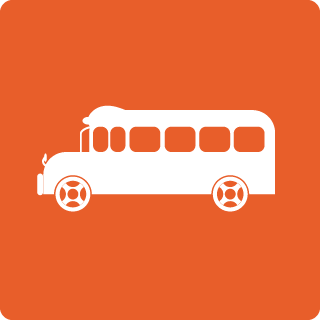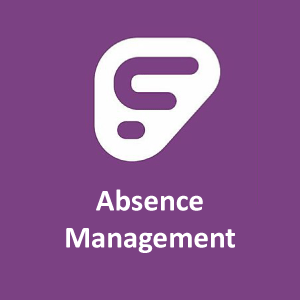


Information Technology
Learn about the Information Technology career cluster.

Develop your career
The Information Technology (IT) career cluster focuses on the design, development, support, and management of hardware, software, multimedia, and systems integration services. This career cluster includes occupations ranging from Software Developer and Programmer to Cybersecurity Specialists and Network Analysts.
Need a hard copy? See the 24-25 Information Technology Career Cluster Packet (PDF).
Programs of study
Expand AllNetworking Systems (Campus)
The Networking Systems program of study focuses on occupations and educational opportunities associated with designing and implementing computer and information networks, such as local area networks (LAN), wide area networks (WAN), intranets, extranets, and other data communications networks. This program of study includes analysis of data processing challenges to implementing and improving computer systems.
Course pathways
| Level | Campus pathway |
|---|---|
| 1 | MST Principles of Information Technology Fundamentals of Computer Science |
| 2 | Computer Science I Internetworking Technologies I (CISCO I) Computer Maintenance |
| 3 | Internetworking Technologies II (CISCO II)
|
| 4 | Career and Technical Education Project-Based Capstone Independent Study in Technology Applications |
Note: Level 3 and 4 classes are advanced CTE courses.
Aligned Occupations
| Occupations | Median wage | Annual openings | 10 Year Growth |
|---|---|---|---|
| Network and Systems Administrators | $85,375 | 2,900 | 20% |
| Computer Systems Analysts | $101,716 | 4,985 | 19% |
| Computer Network Support Specialists | $65,646 | 1,634 | 19% |
Industry-Based Certifications
- Cisco 100-490 RSTECH Supporting Cisco Routing and Switching Network Devices
- Cisco CCNA (200-301) Implementing and Administering Cisco Solutions
- Information Technology Specialist: Networking
Postsecondary options
Below is a list of potential career certifications for a student interested in this program of study.
| Education level | Options |
|---|---|
| Apprenticeship |
|
| Associate's Degree |
|
| Bachelor's Degree |
|
| Master's/Doctoral Degree |
|
*Additional industry-based certification information is available on the TEA CTE website. Includes Level I and Level II certificates
For more information on post-secondary options for this program of study, visit the TXCTE website.
Expanded learning opportunities
One of the best ways to acquire experience in your chosen career is by engaging in exploration activities, work-based learning, or by joining a Career and Technical Student Organization (CTSO).
Exploration activities
- Join the Technology Student Association (TSA)
- Job shadow a computer network architect or support specialist
Work-based learning activities
- Earn an IT certification
Networking Systems (GRCTC)
The Networking Systems program of study focuses on occupations and educational opportunities associated with designing and implementing computer and information networks, such as local area networks (LAN), wide area networks (WAN), intranets, extranets, and other data communications networks. This program of study includes analysis of data processing challenges to implementing and improving computer systems.
Course pathways
| Level | GRCTC pathway |
|---|---|
| 1 | MST Principles of Information Technology Fundamentals of Computer Science
|
| 2 | Computer Science 1 Computer Science Principles Computer Maintenance |
| 3 | Networking |
| 4 | Practicum in Information Technology Independent Study in Technology Applications |
Note: Level 3 and 4 classes are advanced CTE courses.
Aligned Occupations
| Occupations | Median wage | Annual openings | 10 Year Growth |
|---|---|---|---|
| Network and Systems Administrators | $85,375 | 2,900 | 20% |
| Computer Systems Analysts | $101,716 | 4,985 | 19% |
| Computer Network Support Specialists | $65,646 | 1,634 | 19% |
Industry-Based Certifications
- CompTIA A+ Certification
- CompTIA IT Fundamentals+
- CompTIA Network+
- CompTIA Server+
- Information Technology Specialist: Networking
- Microsoft Azure Data Fundamentals
Postsecondary options
Below is a list of potential career certifications for a student interested in this program of study.
| Education level | Options |
|---|---|
| Apprenticeship |
|
| Associate's Degree |
|
| Bachelor's Degree |
|
| Master's/Doctoral Degree |
|
Expanded learning opportunities
One of the best ways to acquire experience in your chosen career is by engaging in exploration activities, work-based learning, or by joining a Career and Technical Student Organization (CTSO).
Exploration activities
- Join the Technology Student Association (TSA)
- Job shadow a computer network architect or support specialist
Work-based learning activities
- Earn an IT certification
Web Development
The Web Development program of study focuses on occupational and educational opportunities associated with designing, creating, and modifying websites. It includes integration of websites with other computer applications and conversion of written, graphic, audio, and video components to compatible web formats using software designed to facilitate the creation of web and multimedia content.
Course pathway
| Level | Campus pathway |
|---|---|
| 1 | Principles of Information Technology Fundamentals of Computer Science |
| 2 | Computer Science I |
| 3 | Web Design |
| 4 | Independent Study in Technology Applications |
Note: Level 3 and 4 classes are advanced CTE courses.
Aligned Occupations
| Occupations | Median wage | Annual openings | 10 Year Growth |
|---|---|---|---|
| Web Developers | $77,712 | 1,170 | 24% |
| Software Developers | $111,705 | 15,324 | 35% |
| Computer and Information Systems Managers | $155,593 | 3064 | 26% |
Aligned Industry-Based Certifications
- Information Technology Specialist: HTML and CSS
Example Postsecondary opportunities
Below is a list of potential career certifications for a student interested in this program of study.
| Education level | Options |
|---|---|
| Associate's Degree |
|
| Bachelor's Degree |
|
| Master's/Doctoral Degree and Professional Degrees |
|
Expanded learning opportunities
One of the best ways to acquire experience in your chosen career is by engaging in exploration activities, work-based learning, or by joining a Career and Technical Student Organization (CTSO).
Exploration activities
- Intern at a nonprofit or small business to support developing or updating their website and digital media
- Shadow a web designer to learn about how they developed their digital design skills and what factors they consider when developing a website
Work-based learning activities
- Create a website
- Participate in SkillsUSA or TSA
Cybersecurity
The Cybersecurity program of study focuses on occupational and educational opportunities associated with planning, implementing, upgrading, or monitoring security measures for the protection of computer networks and information. This program of study includes responding to computer security breaches and viruses and administering network security measures.
Course pathways
| Level | Campus pathway |
|---|---|
| 1 | MST Principles of Information Technology Fundamentals of Computer Science Foundations of Cybersecurity |
| 2 | Computer Science I Computer Maintenance Computer Science Principles |
| 3 | Networking |
| 4 | Career and Technical Education Project-Based Capstone Cybersecurity Independent Study in Technology Applications Cybersecurity Capstone |
Note: Level 3 and 4 classes are advanced CTE courses.
Aligned Occupations
| Occupations | Median wage | Annual openings | 10 Year Growth |
|---|---|---|---|
| Computer User Support Specialists | $51,411 | 5,757 | 21% |
| Software Developers | $111,705 | 15,324 | 36% |
| Information Security Analysts | $110,268 | 1,719 | 49% |
Industry-Based Certifications
- CompTIA A+ Certification
- CompTIA IT Fundamentals+
- CompTIA Network+
- Cybersecurity Fundamentals
- Information Technology Specialist: Networking
Postsecondary options
Below is a list of potential career certifications for a student interested in this program of study.
| Education level | Options |
|---|---|
| Associate's Degree |
|
| Bachelor's Degree |
|
| Master's/Doctoral Degree |
|
Expanded learning opportunities
One of the best ways to acquire experience in your chosen career is by engaging in exploration activities, work-based learning, or by joining TSA or SkillsUSA.
- Participate in a Hackathon
- Participate in TSA or SkillsUSA
Work-based learning activities
- Intern at a local bank, hospital, or government office to develop skills in implementing security measures
- Interview with an information security analyst to learn how they plan for, monitor, and upgrade security measures at their organization
Programming and Software Development
The Programming and Software Development program of study focuses on occupational and educational opportunities associated with researching, designing, developing, testing, and operating systems-level software, compilers, and network distribution software for medical, industrial, military, communications, aerospace, business, scientific, and general computer applications. This program of study includes creating, modifying, and testing the codes, forms, and script that allow computer applications to run.
Course pathway
| Level | Campus pathway |
|---|---|
| 1 | Principles of Information Technology Fundamentals of Computer Science |
| 2 | Computer Science I AP Computer Science Principals |
| 3 | Mobile Application Development AP Computer Science A IB Computer Science Standard Level IB Computer Science Higher Level |
| 4 | Computer Science III Independent Study in Technology Applications |
Note: Level 3 and 4 classes are advanced CTE courses.
Aligned Occupations
| Occupations | Median wage | Annual openings | 10 Year Growth |
|---|---|---|---|
| Computer User Support Specialists | $51,411 | 5,757 | 21% |
| Software Developers | $111,705 | 15,324 | 36% |
| Computer Programmers | $87,997 | 1,176 | 4% |
Aligned Industry-Based Certifications
- C++ Certified Associate Programmer
- Certified Entry-Level Python Programmer (PCEP)
- CodeHS Python Level 1 Certification
- Information Technology Specialist: Java
Example Postsecondary opportunities
Below is a list of potential career certifications for a student interested in this program of study.
| Education level | Options |
|---|---|
| Associate's Degree |
|
| Bachelor's Degree |
|
| Master's/Doctoral Degree and Professional Degrees |
|
Expanded learning opportunities
One of the best ways to acquire experience in your chosen career is by engaging in exploration activities, work-based learning, or by joining a Career and Technical Student Organization (CTSO).
Exploration activities
- Program and create a game
- Participate in SkillsUSA or TSA
Work-based learning activities
- Intern at a local IT company to develop skills in programming and coding
- Shadow a software developer to learn how they create and improve software to support efficient processes at their company

Graduation planning
Endorsement: Business & Industry
See course descriptions and additional information on the course descriptions page.















